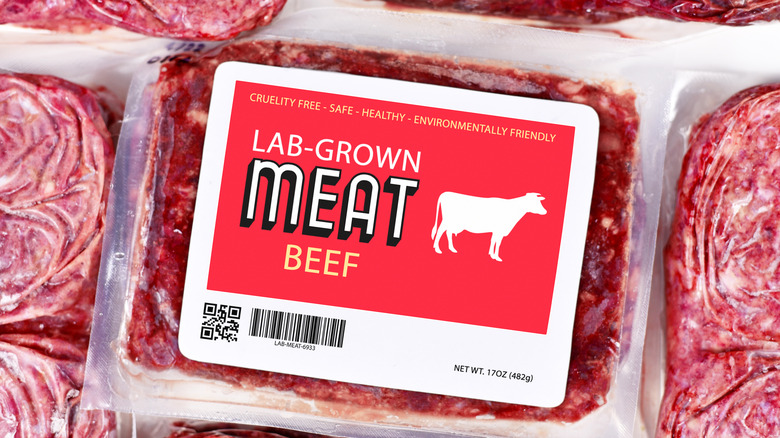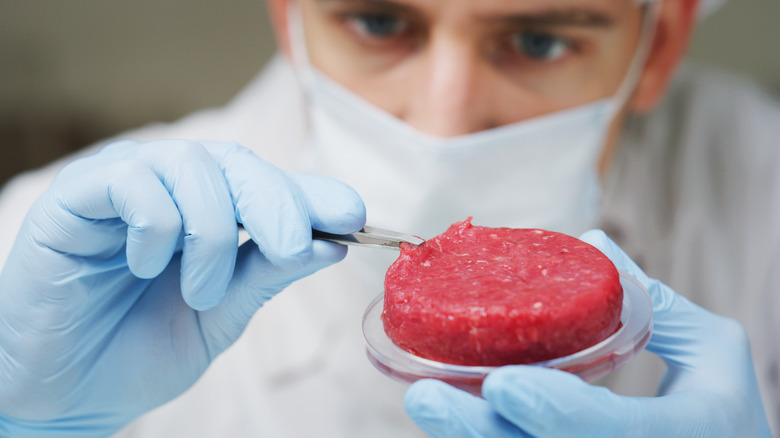Florida Governor Ron DeSantis Signs Bill Banning 'Lab-Grown' Meat
Lab-grown meat is a long way from landing in retail grocery stores, but the state of Florida has preemptively banned its sale within state borders. With the flick of a pen, Governor Ron DeSantis signed the legislation into law on May 3, lessening the chance of cultivated meat products ever threatening Florida's thriving agricultural industry. Announcing the passage of SB 1084, DeSantis declared (via FOX 13 Tampa Bay), "Take your fake lab-grown meat elsewhere. We are not doing that in the State of Florida."
The lab-grown meat at the heart of this legislation refers to meat that's been cultivated from the cells of animals. It thus far takes place in a laboratory-style production facility, leading adversaries to call it names such as "Frankenstein meat," per NPR, and point out the as-yet-unknown health implications of cellular-based meat creation. They also accuse big business, big agriculture, and big food industries of trying to manipulate what's available for human consumption.
Cultivated meat advocates, on the other hand, point out advantages such as the ability to increase nutritional values, lower environmental impact, and decrease the spread of food-borne illnesses. Regardless of speculation, the realities are far from certain, and Florida is the first U.S. state to criminalize lab-grown meat, making it illegal to produce, distribute, or sell future products. Three additional states have bans or restrictions under consideration, including Arizona, Tennessee, and Alabama. This follows similar legislation in other countries, such as Italy's 2023 ban on lab-produced food, which also encountered divisive pushback.
The FDA and market implications of lab-grown meat
The U.S. Food and Drug Administration (FDA) is far from absent in the innovative field of lab-grown meat. Calling it an emerging area of food science, the FDA describes this kind of meat as "human food made with cultured animal cells." The department works directly with the developers of cell culture technology to ensure product safety, accurate labeling, and adherence to FDA marketing requirements.
It also coordinates with the United States Department of Agriculture's Food Safety and Inspection Service (USDA-FSIS), in shared-jurisdiction areas for specified animal species. That joint regulation agreement, cemented in 2019, specifically includes human food from the cultured cells of livestock and poultry. It oversees multiple facets of this complex method of food production, including how to classify lab-grown meats.
Florida is a big player in the beef cow industry, and its pushback against displacement by cellular production is hardly surprising. However, experts in such scientific fields as psychology and bioengineering express growing concern over emotional rhetoric drowning out reason and logic, tainting what could be a safer and more efficient way to produce food in the future. Regarding the passage of SB 104, DeSantis stated, "Florida is fighting back against the global elite's plan to force the world to eat meat grown in a petri dish or bugs to achieve their authoritarian goals." In other parts of the country, cultural issues crop up, including debates over halal and kosher qualities of lab-grown meat.

